Planting a Greener Future: Bajaj Allianz General Insurance's ESG Commi
Bajaj Allianz General Insurance has taken a significant step towards sustainability with its tree plantation initiative, "A Legacy of Responsibility." Read more
Plantation Site Gallery
Project Update 2
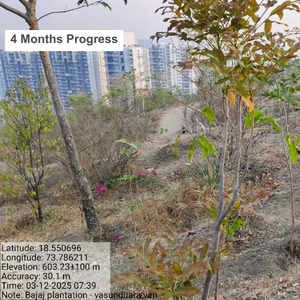
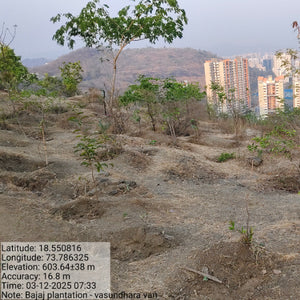
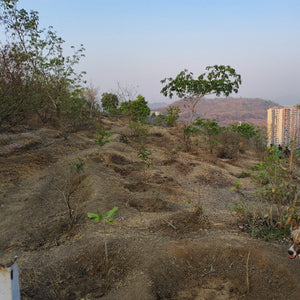
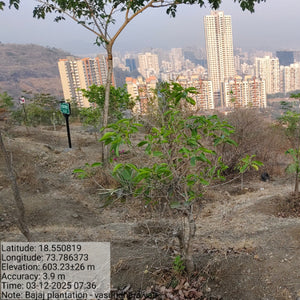
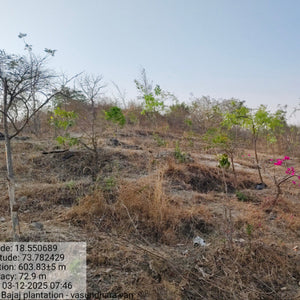
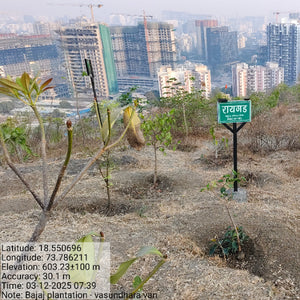
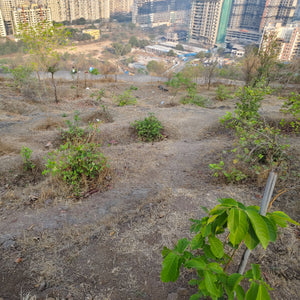
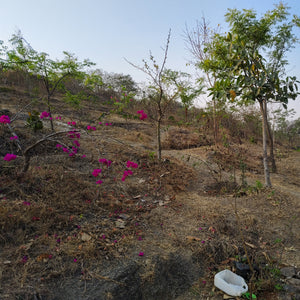
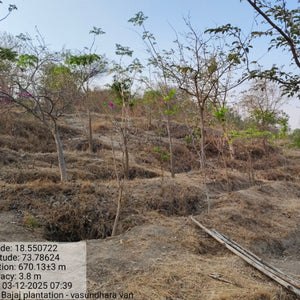
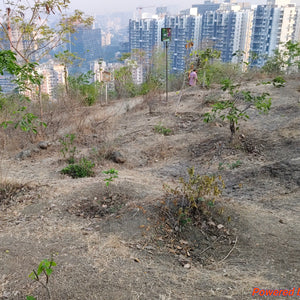
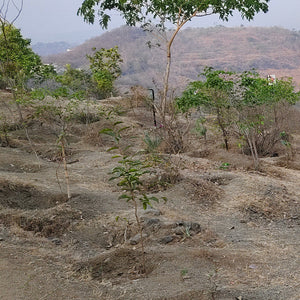
Project Update 1
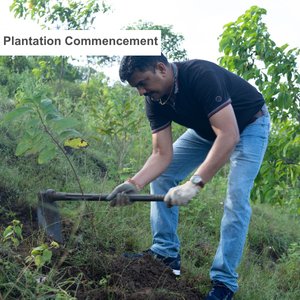
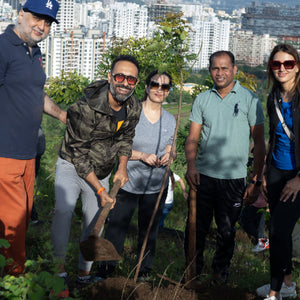
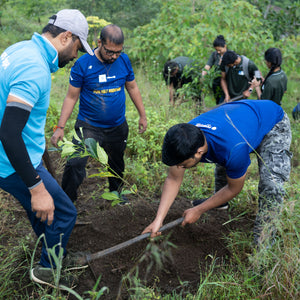
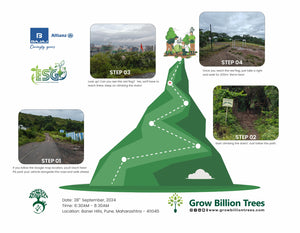
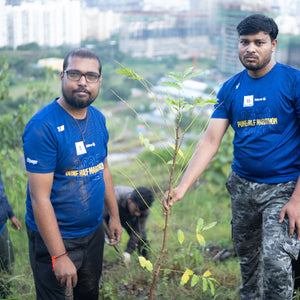
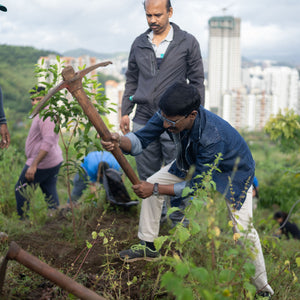
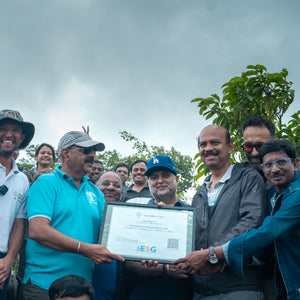
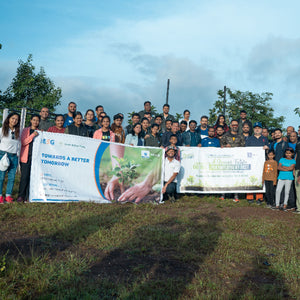
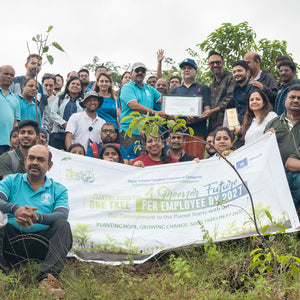
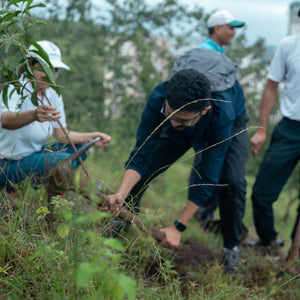
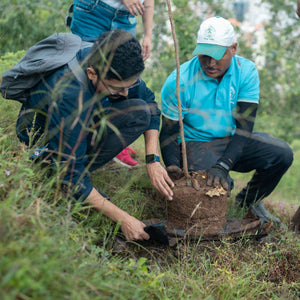
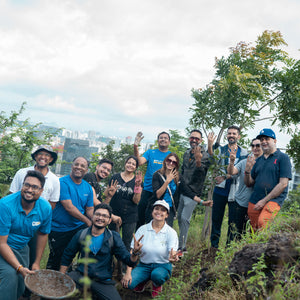
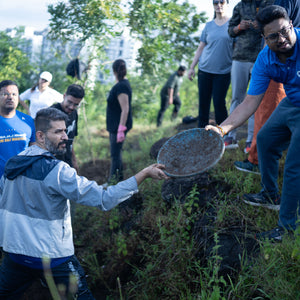
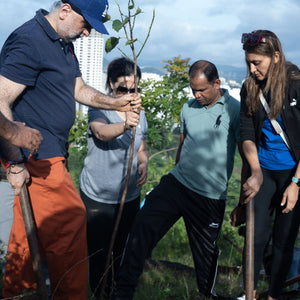
Digital Forest
Forest with 500 Trees planned
Want to plant your tree now?
Plant a Tree @ 299Planting a Greener Future: Bajaj Allianz General Insurance's ESG Commitment
Bajaj Allianz General Insurance has taken a significant step towards sustainability with its tree plantation initiative, "A Legacy of Responsibility." In this initiative, the company commits to planting one tree for every employee by 2027, symbolizing its dedication to the environment and future generations. By aligning corporate responsibility with environmental action, this initiative ensures that each tree represents a personal connection to the planet. This green effort not only supports the company’s ESG goals but also creates a lasting legacy where each employee contributes to the betterment of the ecosystem.
Project Planning & Execution
No. of trees: 500 Trees
Plantation Location: Pan Card Clubs area, Vasundhara Abhiyan Baner Next to Reelicon Alpine Ridge, Baner, Pune, Maharashtra 411045
Plantation Duration: September 28th, 2024 to October 25th, 2024
Name of Species: Muchkand, Khaya, Gulbhendi, Karanj, Arjun, Palas, Katesawer, Satwin, Kadamb, Tembhurni, Aam, Arjun, Chafa, Shirish, Waval, Putranjiva, Bija, Charoli, Dhawada, Moha, Jamun, Mokha, Ber
Species Selection & Its Benefits:
The carefully selected tree species for the BAGIC Urban Forest project at Baner Hills, Pune, including Muchkand, Khaya, Gulbhendi, Karanj, Arjun, Palas, and Kadamb, have been chosen for their ecological and social benefits. These species contribute significantly to enhancing biodiversity by providing habitats for wildlife and pollinators, improving soil fertility, and aiding in groundwater recharge. Trees like Shirish and Putranjiva create cooling microclimates, helping mitigate the urban heat island effect, while species such as Jamun and Ber contribute to local food resources.
In addition to their ecological value, these species offer considerable social and economic benefits. Trees like Jamun, Charoli, and Moha provide edible fruits, supporting local communities and fostering sustainable livelihoods. Others, such as Arjun and Dhawada, are known for their medicinal properties. By improving air quality, offering shade, and creating green spaces, these trees enhance the quality of life for residents and visitors.
By prioritizing native species like Waval, Palas, and Bija, the project ensures a resilient and sustainable urban forest that effectively addresses environmental challenges while meeting community needs.
Beneficiaries Details
-
Target Population: Employees, stakeholders, and local community members of Pune
-
Age Group: All age groups focus on adults to seniors
-
Gender: Inclusive of all genders
- Social & Economic Status: Open to all social and economic backgrounds, emphasizing community involvement
Planting Methodology and Its Advantages
Urban Forest: The planting methodology adopted for BAGIC's Urban Forest project in Baner Hills, Pune (Maharashtra), focuses on restoring the natural ecology of the hill by fostering native biodiversity through dense tree plantations.
Advantages of Urban Forest
-
Hill Restoration: The initiative emphasizes ecological restoration by planting native tree species, stabilizing the soil, and rejuvenating the natural vegetation of Baner Hills, Pune (Maharashtra).
-
Replication of Natural Forests: Native trees were strategically planted to mimic natural forest ecosystems, accelerating canopy growth and promoting biodiversity.
-
Sustainability Measures: Restored the hill area into a green and vibrant space, aiding in urban cooling, enhancing rainwater percolation, and contributing to long-term environmental resilience.
-
Environmental Benefits: The project improves air quality, sequesters carbon, and enhances the hill's capacity to act as a natural barrier against erosion. By fostering ecological restoration, it revives the hill's biodiversity, creates habitats for local wildlife, and enriches the land, ensuring long-term environmental resilience.
-
Healthier Air & Cooling Effect: Trees purify the air, improving public health and reducing pollution, while their green cover mitigates the urban heat island effect, making the city cooler and more livable.
-
Stormwater Management: Tree canopies reduce runoff, allowing rainwater to seep into the ground, minimizing flooding, and boosting groundwater recharge.
-
Biodiversity Boost: Native species enhance local ecosystems and provide wildlife habitats.
-
Community Well-being: Green spaces offer recreational areas that improve mental and physical health.
- Aesthetic Value: Trees enhance the visual appeal of urban spaces, making them more attractive and inviting, while also boosting property values in surrounding areas.
Activities During Tree Plantation
A Green Legacy: The Story of Baner Hills Tree Plantation
The day began with a sense of excitement as participants arrived at Baner Hills, Pune(Maharashtra), ready for a unique experience combining trekking, learning, and action. The group embarked on an invigorating trek up the hill of approximately 1.5–2 kilometers, navigating the rugged terrain surrounded by scenic views. This set the tone for an impactful day focused on ecological restoration.
The plantation activity began with participants carefully transporting saplings to the pre-dug pits, a process overseen by the on-ground team led by Mr. Bhujabal Pandurang. Experts provided guidance on planting methods, incorporating Continuous Contour Trenches (CCT) to ensure water conservation and soil retention, enhancing the survival rate of the saplings. A total of 120 saplings were planted that day, with the remaining saplings being planted within a month to complete the project. The participants actively engaged in these scientifically informed techniques, ensuring the saplings were positioned for optimal growth. Native species were chosen for their ecological benefits, such as supporting biodiversity and improving soil health. Team members of GBT, including Mr. Satender Kumar, Ms. Nidhi Singh, Ms. Kanupriya Singh, and Ms. Rashmi Agarwal, assisted participants throughout the process, ensuring that both practical and sustainable methods were followed.
The presence of corporate leaders added a personal and inspiring touch to the event. During the plantation activity, Nidhi Singh, CEO and Co-Founder of Grow Billion Trees, interviewed the leaders, capturing their collective insights. Mr. Ramandeep Singh Sahni, CFO, highlighted how the initiative aligns with BAGIC’s sustainability goals. Mr. Anckur Anil Kanwar, CFO Designate, emphasized the role of tree plantation in creating a greener and healthier future. Mr. Onkar Kothari, Company Secretary and Chief Compliance Officer, stressed the importance of collaboration between employees and ecological partners for driving impactful change. As the activity progressed, Mr. Abhishek Dole, ESG Lead, reflected on the significance of individual contributions in addressing climate change and building long-term environmental resilience.
As the event concluded, the leadership team expressed heartfelt gratitude to everyone involved, employees, volunteers, experts, and ground team for making it possible. Participants left with not just memories of the day but also the knowledge that their efforts were directly contributing to a greener, healthier future.
This tree plantation initiative wasn’t just an event; it was a testament to BAGIC’s vision of “A Legacy of Responsibility.” It showcased how collaboration between corporations, communities, and ecological experts can create lasting impact, fostering hope for a sustainable and eco-friendly tomorrow, one tree at a time.
Conclusion Elements
Impact
Direct Impact
| Parameters | Units | References |
| No. of Trees Planted | 500 | |
| Green Cover (Acres) | 12 | |
| Carbon Sequestration Potential (KG) | 20 |
Small to medium-sized trees can sequester around 10–48 kilograms (22–106 pounds) of CO₂ annually. https://onetreeplanted.org/blogs/stories/how-much-co2-does-tree-absorb |
| Carbon Sequestration by 500 mature trees ( Tons/year) | 10 | No. of Trees x Carbon Sequestration by 1 mature trees per year |
| Carbon Credit Equivalent | 10 | One carbon credit is equivalent to one tonne of carbon dioxide or the equivalent amount of another greenhouse gas. |
| Carbon Footprint of an avg Indian Citizen (Tons/Year) | 1.8 | https://www.iea.org/countries/india/emissions |
| Offsets Annual Carbon Footprint of (Adults) | 5.6 | Carbon offset by 500 mature trees per year / Carbon Footprint of an avg Indian Citizen per year |
*This impact analysis is forward-looking (An Urban Forest project matures in 3-5 years)
Indirect Impact
Community Impact
-
Improved Public Health: By improving air quality and reducing urban heat, the project indirectly contributes to better public health. The presence of green spaces encourages outdoor activities, which can reduce stress levels, promote mental well-being, and decrease the incidence of respiratory diseases.
-
Employee Morale: The initiative fostered a sense of pride and connection among employees, strengthening team bonds and their alignment with the company’s values.
-
Inspiration for Change: By showcasing the potential of urban forestry, the project has encouraged other organizations and local communities to undertake similar initiatives.
-
Cultural Shift: The initiative instilled a mindset of sustainability and environmental care among participants, creating advocates for green practices in their personal and professional lives.
Environmental Impact
-
Biodiversity Conservation: The introduction of native tree species supports local ecosystems, providing habitats for wildlife. This promotes a balanced and thriving environment, enhancing biodiversity in Baner Hills, Pune (Maharashtra).
-
Air Quality Improvement: Increased green cover helps absorb pollutants and carbon emissions, significantly improving air quality. The trees contribute to cleaner, fresher air, benefiting both humans and animals in the area.
-
Water Conservation: Continuous Contour Trenches (CCT) improve water retention in the soil and reduce surface runoff. This ensures better groundwater recharge and supports nearby water bodies during dry periods.
- Climate Resilience: The forest cover reduces the urban heat island effect, providing cooling benefits. It also strengthens the region’s resilience to climate change by moderating temperature extremes and improving local climate stability.
Achievements
SDG Goals Achieved through Urban Forestry
BAGIC, through its "One Tree for Every Employee by 2027" initiative and urban forest plantation drive under the slogan "A Legacy of Responsibility," contributes to several United Nations Sustainable Development Goals (SDGs). Here are the key SDGs achieved by the company’s efforts:
-
SDG 3 (Good Health and Well-Being): Urban forests contribute to improved air quality and provide natural spaces for physical and mental well-being. The company’s plantation efforts enhance public health by creating greener, healthier environments for communities, contributing to overall well-being.
-
SDG 6 (Clean Water and Sanitation): Urban forests play a vital role in water conservation by improving groundwater recharge, reducing surface runoff, and naturally filtering water. These plantations contribute to sustainable water management practices, ensuring cleaner and healthier water systems in urban areas.
-
SDG 8 (Decent Work and Economic Growth): The employee engagement program, where each tree is planted in honor of an employee, fosters a culture of sustainability within the workplace. This initiative aligns with BAGIC’s commitment to environmental responsibility, promoting sustainable growth, and contributing to a greener economy in the local community.
-
SDG 9 (Industry, Innovation, and Infrastructure): The urban forest initiative employs innovative greening techniques, including hillside plantations and native species selection. These practices enhance urban infrastructure by creating resilient green spaces and fostering eco-friendly innovations in city planning.
-
SDG 10 (Reduced Inequalities): The initiative promotes inclusivity by involving diverse stakeholders, including marginalized communities, in the implementation and maintenance of urban forests. This approach ensures equitable benefits and opportunities for all participants, reducing social and economic disparities.
-
SDG 11 (Sustainable Cities and Communities): Through urban forest initiatives, BAGIC helps build more resilient and sustainable cities. The trees planted mitigate air pollution, reduce urban heat, and improve urban living conditions, fostering more sustainable communities.
-
SDG 12 (Responsible Consumption and Production): BAGIC’s tree plantation efforts underscore their commitment to sustainable resource management. Through its urban forest program, the company promotes environmental responsibility, ensuring that its consumption and production practices align with global sustainability standards. This initiative contributes to responsible production and consumption by enhancing green cover and supporting ecosystem health.
-
SDG 13 (Climate Action): By planting trees for every employee, the company directly addresses climate change. The trees sequester carbon dioxide, helping to mitigate the company’s carbon footprint and contributing to broader efforts to combat global climate change.
-
SDG 15 (Life on Land): BAGIC urban forest efforts protect and restore ecosystems, promoting biodiversity and supporting sustainable land use. These efforts help conserve terrestrial ecosystems and improve the health of natural habitats in urban environments.
-
SDG 16 (Peace, Justice, and Strong Institutions): The initiative fosters community-led governance and inclusive decision-making, ensuring transparency and collaboration among stakeholders. This approach strengthens local institutions and supports peaceful, sustainable urban development.
- SDG 17 (Partnerships for the Goals): Through a strategic alliance with Grow Billion Trees, BAGIC has successfully established an urban forest on a hillside, promoting sustainable land use practices that benefit both local communities and the environment. Grow Billion Trees played a vital role in connecting the company with local stakeholders, providing expertise and resources to ensure the successful implementation of this urban forest initiative. This partnership has empowered communities to take ownership of the urban forest, promoting sustainable practices that enhance both ecological health and social well-being while advancing environmental goals.
ESG Achieved through Urban Forest:
Environmental Impact: Tackling Climate Change & Hill Restoration
BAGIC contributes to combating climate change through its tree plantation efforts, sequestering carbon dioxide and reducing greenhouse gasses. The focus on hill restoration revitalizes degraded land, controls soil erosion, and enhances biodiversity. Trees planted on hills stabilize slopes, protect watersheds, and prevent landslides. This urban forest and hill restoration initiative supports the company’s goal of achieving net-zero emissions by 2027, with each tree acting as a carbon sink, improving air quality, and providing essential green cover for both urban and hilly areas.
Social Responsibility: Employee and Community Engagement
BAGIC recognizes that employee engagement is key to the success of its ESG initiatives. The "One Tree for One Employee" campaign encourages staff to actively participate in tree-planting activities, fostering a culture of environmental responsibility. The initiative also engages local communities, particularly in hill restoration projects, creating opportunities for community members to contribute to meaningful environmental change. The presence of green spaces, whether in urban environments or on hillsides, significantly boosts community health and well-being. These areas reduce stress, encourage physical activity, and promote social interaction, making them essential to both individual and collective mental health. The BAGIC tree plantation program creates a ripple effect of positive social outcomes, offering a greener, healthier space for everyone involved.
Governance: Accountability and Long-Term Commitment
BAGIC prioritizes transparency, accountability, and ethical practices in its hilltop tree plantation under the urban forest concept. In collaboration with Grow Billion Trees, the initiative aligns with environmental goals, with geo-tagged planting sites for accurate tracking and regular progress updates. Internal audits and annual reports assess the environmental, social, and economic impacts, ensuring continued accountability. This governance approach ties the project to the company’s ESG goals, enhancing the urban ecosystem, adding green cover to hillsides, and creating lasting value for the environment, employees, and communities.
Building Communities
-
Promoting Environmental Awareness: Engaging employees and local communities in tree-planting drives helps to raise awareness about environmental issues. These activities foster a deeper understanding of sustainability and encourage a collective commitment to protecting the environment, creating a shared responsibility for future generations.
-
Strengthening Partnerships: Building partnerships with NGOs, local organizations, and community groups helps expand the reach of green initiatives. These collaborations leverage local expertise, resources, and networks, enhancing the effectiveness of the tree-planting projects and ensuring greater participation from diverse community members.
-
Creating Green Ambassadors: Empowering individuals, especially youth, to act as Green Ambassadors fosters leadership in sustainability. By providing education and platforms for advocacy, these ambassadors inspire others to engage in environmental action, creating a ripple effect that encourages the wider community to adopt greener practices.
-
Social Inclusion: Ensuring that people from all socioeconomic backgrounds are involved in environmental activities creates a sense of unity and collective action. Social inclusion in these initiatives promotes equality, helps bridge gaps between communities, and ensures that the benefits of environmental improvements are shared by all.
-
Shared Benefits: Greener spaces bring a range of ecological, economic, and social benefits to communities. These include improved air quality, better mental and physical health, increased economic opportunities through sustainable practices, and a stronger sense of community well-being, ultimately enhancing the quality of life for residents.
Commitment by Grow Billion Trees
Trees for Corporates
Trending
Most Popular
Tree Plantation Initiatives by Bajaj Allianz General Insurance
Tree plantation isn’t just an initiative; it’s a green revolution at Bajaj Allianz General Insurance. By integrating tree-planting events into their corporate culture, the company is making a strong statement for environmental responsibility. This goes beyond simple CSR – it's about creating a lasting legacy of responsibility. Every sapling planted by the company symbolizes growth and the collective effort towards combating climate change, boosting biodiversity, and contributing to a greener urban landscape.
Urban Forest Creation
Bajaj Allianz General Insurance is focusing on transforming cityscapes with urban forests. These dense green patches within city limits not only beautify urban areas but also help mitigate pollution, conserve water, and provide habitats for wildlife. The company’s approach to urban forests serves as a smart, eco-friendly solution to reducing carbon footprints while simultaneously creating spaces that offer a breath of fresh air – literally.
Employee Engagement through Tree Planting
What better way to strengthen employee bonds than with a shovel and a tree sapling? Bajaj Allianz General Insurance involves its employees in urban forest creation, turning corporate responsibility into a fun and educational team-building exercise. Employees leave with a sense of contribution, knowing they've not only engaged with their peers but also with the planet, one tree at a time.
Corporate Social Responsibility (CSR) and Urban Forests
Bajaj Allianz General Insurance's urban forest projects are at the heart of its CSR efforts. The company understands that sustainable growth for a business must include sustainable practices for the planet. Urban forests stand as a testimony to the company’s commitment to reduce carbon footprints and combat urban heat islands. This green initiative is a win-win for the company, the employees, and the environment.
Urban Biodiversity Boosting
Trees are more than just carbon absorbers – they create ecosystems. Bajaj Allianz General Insurance recognizes the power of trees to boost urban biodiversity. The company’s urban forests bring life to otherwise concrete-dominated environments, supporting local flora and fauna, and turning dull cityscapes into lively, vibrant green spaces. It’s not just about planting trees; it’s about nurturing entire ecosystems in urban areas.
Green Legacy for Future Generations
Bajaj Allianz General Insurance is not just planting trees; it’s planting a future. With its "Legacy of Responsibility" slogan, the company is ensuring that future generations inherit more than just financial stability – they inherit a healthier planet. These tree plantations are an investment in tomorrow, making the earth a better place for all, while creating awareness about the importance of sustainable living.
Carbon Footprint Reduction through Urban Forestry
Urban forests are excellent carbon sinks. Bajaj Allianz General Insurance is tackling climate change head-on by planting trees that will absorb carbon dioxide, produce oxygen, and reduce pollution in city areas. This initiative aligns with the company's ESG goals and showcases its commitment to lowering its carbon footprint and fighting climate change.
Urban Forest as a Climate Change Solution
With the growing concern around climate change, Bajaj Allianz General Insurance is turning urban forests into powerful weapons in the fight against global warming. These forests help mitigate climate impacts by improving air quality, cooling urban areas, and capturing greenhouse gases. It’s a natural and long-lasting solution that brings immediate and long-term benefits to cities and their inhabitants.
FAQ
What is the objective behind Bajaj Allianz General Insurance's tree plantation initiative?
Bajaj Allianz General Insurance's tree plantation initiative aims to create a greener environment and contribute to sustainability. Through urban forest projects, the company is focusing on reducing carbon footprints, enhancing biodiversity, and improving air quality in urban areas. It is part of the company's broader ESG (Environmental, Social, Governance) efforts, ensuring that its operations positively impact the planet while involving employees and the community in creating long-lasting green spaces.
What is an urban forest, and how is Bajaj Allianz General Insurance involved?
An urban forest is a densely planted collection of trees in urban areas, designed to improve environmental health, reduce pollution, and create green spaces in cities. Bajaj Allianz General Insurance has embraced this concept as part of its sustainability efforts, planting urban forests in various city locations. These initiatives are part of the company's commitment to reducing environmental degradation and promoting eco-friendly practices, benefiting both city residents and the ecosystem.
How does Bajaj Allianz General Insurance involve its employees in tree plantation?
Bajaj Allianz General Insurance believes in hands-on engagement, involving its employees in tree plantation activities. These events serve as team-building exercises while educating employees about sustainability and environmental responsibility. By actively participating in urban forest creation, employees contribute directly to the company’s green initiatives and feel more connected to the broader mission of building a sustainable future. It’s a fun, fulfilling way to combine corporate responsibility with personal growth.
Why does Bajaj Allianz General Insurance focus on urban forests rather than rural areas?
Urban forests provide immediate environmental benefits in densely populated areas. By focusing on urban forestation, Bajaj Allianz General Insurance aims to improve the quality of life in cities, where pollution levels are higher and green spaces are often lacking. Urban forests not only reduce carbon footprints but also mitigate the urban heat island effect, improving air quality and providing shade, which is essential in crowded, concrete-heavy environments.
What are the long-term benefits of Bajaj Allianz General Insurance's urban forest initiatives?
The long-term benefits of Bajaj Allianz General Insurance’s urban forest initiatives include improved air quality, enhanced biodiversity, and a reduction in carbon emissions. These forests will continue to absorb carbon dioxide, cool down urban areas, and offer habitats for wildlife. Over time, urban forests help reduce the impact of climate change, promote community well-being, and create green spaces that future generations can enjoy.
How does tree plantation align with Bajaj Allianz General Insurance’s ESG goals?
Bajaj Allianz General Insurance is committed to its ESG (Environmental, Social, Governance) goals, and tree plantation plays a key role in achieving these objectives. By planting trees, the company is actively reducing its carbon footprint, addressing environmental concerns, and contributing to biodiversity. This aligns with its overall mission to operate sustainably while also supporting social causes like environmental education, community involvement, and corporate responsibility.
How does Bajaj Allianz General Insurance choose the tree species for urban forests?
Bajaj Allianz General Insurance selects tree species for urban forests based on factors like climate adaptability, local biodiversity, and environmental impact. The company prioritizes native species that thrive in local conditions, support wildlife, and contribute to improving air and soil quality. This thoughtful approach ensures the long-term sustainability of the urban forests and maximizes the environmental benefits they offer to surrounding communities.
What role does urban forest play in combating climate change?
Urban forests are vital in combating climate change, and Bajaj Allianz General Insurance recognizes their significance. These forests act as natural carbon sinks, absorbing harmful greenhouse gases and reducing the urban heat island effect. By planting trees in cities, the company helps lower temperatures, improve air quality, and offset carbon emissions, contributing to the global fight against climate change while making cities more livable.
How does Bajaj Allianz General Insurance ensure the sustainability of its urban forest initiatives?
Bajaj Allianz General Insurance ensures the sustainability of its urban forest initiatives by selecting appropriate tree species, providing post-plantation care, and involving local communities. The company collaborates with environmental experts to ensure the health and longevity of the forests, and it encourages ongoing employee and community participation in nurturing the trees. Regular maintenance and monitoring guarantee that these green spaces thrive and continue delivering long-term environmental benefits.
What is the significance of community involvement in Bajaj Allianz General Insurance’s urban forest projects?
Community involvement is central to the success of Bajaj Allianz General Insurance’s urban forest projects. By engaging local residents, employees, and stakeholders, the company fosters a sense of shared responsibility for environmental preservation. Community participation helps ensure the longevity of the planted trees and strengthens environmental awareness. These projects not only contribute to a greener environment but also bring people together to work toward a common, sustainable goal.
- Choosing a selection results in a full page refresh.
- Opens in a new window.
























